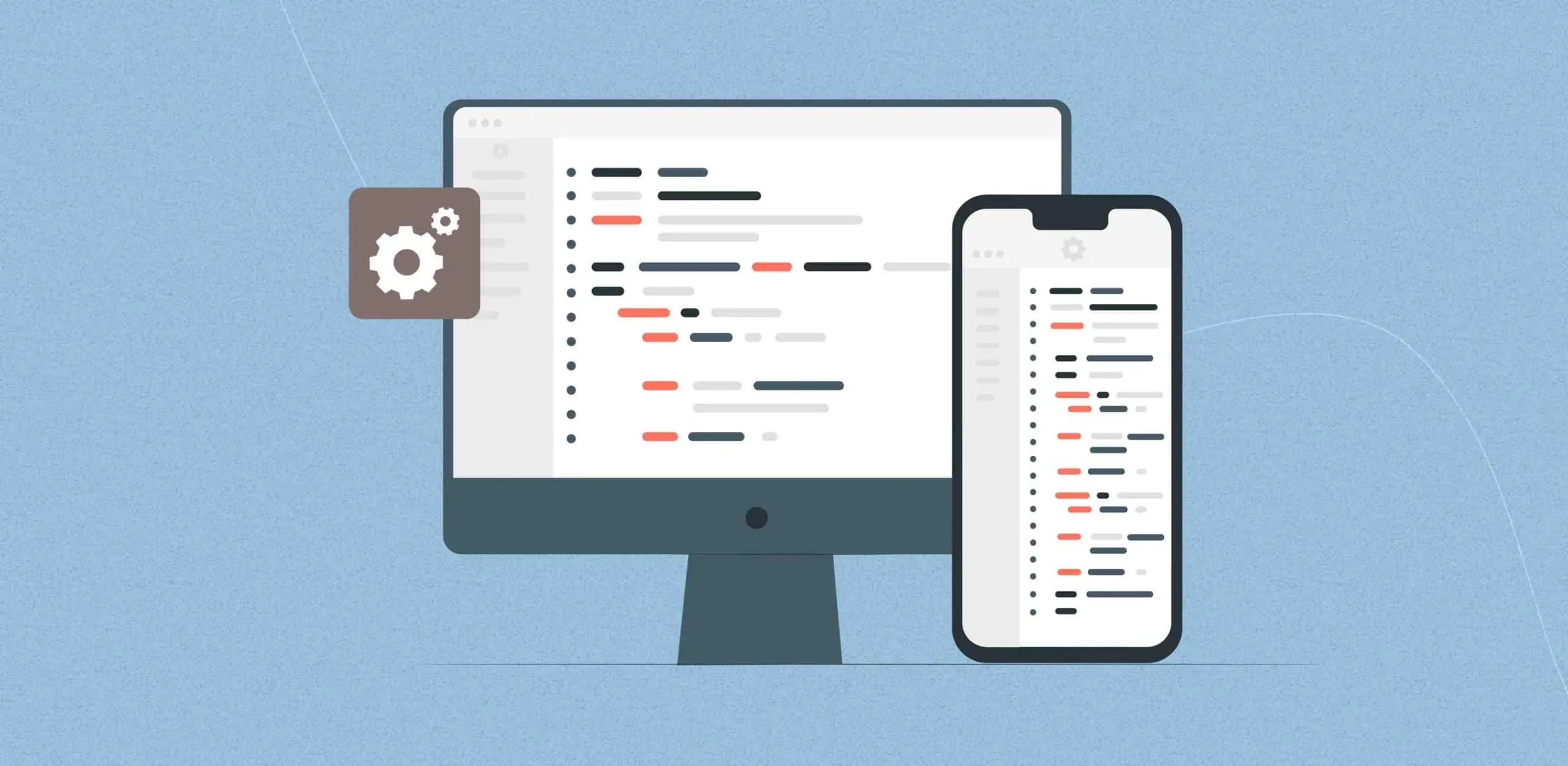Generative AI development is rapidly becoming a cornerstone of enterprise innovation. As organizations strive to streamline operations, personalize customer experiences, and gain a competitive edge, custom generative AI solutions are emerging as powerful tools to transform how businesses think, operate, and grow.
Unlike off-the-shelf AI tools that offer generic capabilities, custom generative AI development enables enterprises to harness their proprietary data, align with internal workflows, and meet strict compliance standards—delivering smarter automation and deeper insights tailored to their needs.
But what makes generative AI for enterprise truly valuable? And why are industry leaders choosing tailored solutions over plug-and-play alternatives? Let’s explore.
What is Custom Generative AI and Why it Matters for Enterprises?
Generative AI refers to systems that can create text, images, code, and other forms of data using advanced models like GPT (language), DALL·E (visual), or other large-scale neural networks. But when we say custom generative AI, we’re talking about more than just using ChatGPT or MidJourney.
Custom generative AI solutions are tailored to a specific company’s needs—trained on its proprietary data, aligned with internal workflows, and integrated seamlessly with enterprise software and compliance frameworks.
Why does this matter?
Because no two enterprises are alike. From customer profiles to product portfolios, your data is unique—and so are your challenges. Generic tools might provide surface-level insights, but custom solutions offer deep, actionable intelligence aligned with your business DNA.
Top Business Benefits of Generative AI Development for Enterprises
Enterprises are increasingly turning to generative AI development to drive innovation, improve efficiency, and create personalized customer journeys. Unlike standard tools, custom generative AI solutions can be molded to fit your specific business environment—offering significant and measurable advantages. Below are the key business benefits that make generative AI for enterprise a game-changer:
Operational Efficiency and Automation
One of the most immediate and visible benefits of generative AI lies in its ability to automate repetitive, time-consuming tasks. From drafting internal reports and emails to summarizing meetings and generating documentation, AI streamlines workflows that traditionally eat up employee hours. In customer service, AI-powered chat assistants can handle FAQs, appointment scheduling, and basic troubleshooting with remarkable speed and accuracy—reducing the burden on human agents. With these tasks automated, enterprise teams are free to focus on high-value, strategic work, ultimately driving greater output without increasing overhead.
Enhanced Customer Experience
Today’s customers expect personalization at every touchpoint—and generative AI delivers just that. By analyzing customer data such as behavior, purchase history, and engagement patterns, AI can generate hyper-personalized experiences in real time. Think product recommendations that are uniquely relevant, marketing content tailored to individual preferences, and adaptive landing pages that change based on user profiles. With conversational AI interfaces, businesses can provide 24/7 human-like customer support, improving satisfaction and increasing customer loyalty. These AI-enhanced experiences are not just convenient—they’re a competitive advantage.
Intelligent Decision-Making
In the age of big data, making sense of large volumes of information quickly is critical. Generative AI can process, summarize, and interpret complex datasets in real-time, uncovering patterns and insights that might be missed by traditional analytics. Enterprise leaders can use these insights for better forecasting, market analysis, and risk management. For example, AI can generate executive summaries of sales trends, customer sentiment analysis, or competitor intelligence—enabling faster and more informed decision-making across departments.
Cost Savings at Scale
Custom generative AI solutions allow enterprises to do more with less. By reducing manual workload, minimizing errors, and accelerating production processes, AI significantly cuts operational costs. Unlike hiring additional staff or outsourcing tasks, AI offers scalable productivity without a proportional increase in expense. Additionally, when deployed strategically, generative AI can reduce time-to-market for new products, streamline onboarding and training, and even reduce energy consumption in cloud services through optimized data usage. These efficiencies translate directly into bottom-line gains.
Security and Compliance
Security and compliance are non-negotiable in enterprise environments. Off-the-shelf AI tools often come with data privacy risks, especially when sensitive information is processed in public cloud environments. Custom-built AI, on the other hand, can be designed with enterprise-grade security features from the ground up—encryption, access controls, audit logs, and more. Moreover, custom generative AI solutions can be developed to comply with strict regulations like HIPAA, GDPR, CCPA, or SOC 2, ensuring that your enterprise stays compliant while benefiting from cutting-edge technology.
Integration with Enterprise Systems
True digital transformation only happens when new tools integrate seamlessly into your existing infrastructure. Custom generative AI development allows for deep integration with enterprise systems like Salesforce, SAP, Oracle, Microsoft Dynamics, and even custom-built legacy platforms. This ensures that AI capabilities are embedded directly into your core business processes, reducing training time, increasing adoption rates, and unlocking immediate value. Whether you’re enriching CRM data, automating ERP tasks, or streamlining HR operations, generative AI becomes an organic part of your enterprise ecosystem—not just a bolt-on.
Read the top 10 reasons why startups should partner with a Generative AI Development Company.
Real-World Use Cases of Generative AI in Enterprises
Generative AI development is making a tangible impact across diverse industries by revolutionizing the way businesses create, communicate, and operate. Here’s a closer look at how enterprise organizations are using custom generative AI solutions to solve real-world problems, improve efficiency, and enhance customer experiences.
Generative AI Development in Education
The education sector is rapidly adopting generative AI for enterprise to personalize learning, improve teaching effectiveness, and automate administrative tasks.
- AI-powered content generation enables educational institutions and edtech companies to produce learning materials tailored to individual student needs, language preferences, and academic goals.
- Virtual tutors and assistants built on large language models (LLMs) provide instant feedback, answer queries, and guide learners outside the classroom.
- Assessment creation and grading automation help educators save time by auto-generating quizzes, assignments, and rubrics.
- Intelligent curriculum planning leverages AI to recommend learning paths based on student performance and engagement metrics.
Example: An edtech platform uses generative AI to develop multilingual microlearning modules that adapt in real-time to each learner’s pace, ensuring inclusive and personalized education at scale.
Generative AI Development in Unified Communications
In today’s hybrid work environment, seamless communication is critical. Generative AI is empowering businesses to automate and enhance collaboration across distributed teams.
- Smart meeting summarizers automatically generate concise recaps of meetings, saving employees hours of manual note-taking.
- Auto-generated follow-up emails and action items ensure that tasks are not missed and decisions are clearly documented.
- Voice-to-text transcription tools transform spoken content into searchable internal documentation.
- Real-time language translation supports cross-border collaboration, enabling multilingual teams to communicate effortlessly.
Example: A global enterprise integrates a custom GPT-based model into its collaboration platform to generate accurate meeting summaries, action lists, and multilingual translations, improving internal communication and productivity.
Generative AI Development in Entertainment
In the entertainment industry, creativity meets technology through generative AI development—opening new frontiers in content creation, audience engagement, and production efficiency.
- Scriptwriting support tools help content creators brainstorm, outline, and even write initial drafts faster.
- Automated content tagging and metadata generation streamline cataloging for media libraries.
- Generative visuals and animation engines produce assets for games, films, and digital campaigns.
- Personalized content recommendations analyze user preferences to increase engagement and retention.
Example: A leading streaming platform deploys custom generative AI to auto-generate episode summaries, multilingual subtitles, and highlight reels—enhancing the user experience while reducing editorial workload.
Generative AI Development in Retail
Retailers are leveraging custom generative AI solutions to elevate the customer journey, from discovery to post-purchase support.
- AI-generated product descriptions allow brands to scale content creation across thousands of SKUs with consistent tone and SEO focus.
- Personalized product recommendations use customer behavior data to deliver relevant suggestions in real-time.
- AI-powered chatbots handle sales queries and support in a conversational, human-like manner.
- Visual search functionality helps customers find products by uploading images, driven by multimodal generative models.
Example: An e-commerce company implements a generative AI engine to dynamically write SEO-friendly product descriptions and generate landing pages customized to individual shopper behavior.
Generative AI Development in Healthcare
In healthcare, generative AI for enterprise is driving breakthroughs in administrative efficiency, patient care, and clinical documentation.
- Patient summaries generated from EHR data help physicians understand patient history quickly without digging through multiple documents.
- AI-driven chatbots for symptom triage allow patients to receive guidance before reaching a doctor, easing staff workload.
- Tailored patient education content ensures individuals receive understandable, relevant medical advice post-consultation.
- Drug interaction reports and treatment plan suggestions generated by AI can support clinicians in making informed decisions.
Example: A hospital network deploys a HIPAA-compliant generative AI system that helps doctors automatically document patient visits and draft clinical summaries, improving accuracy and saving valuable time.
Generative AI Development in Banking & Finance
The financial services sector benefits significantly from AI development services for businesses, especially when compliance, precision, and speed are non-negotiable.
- Auto-generated financial statements and reports save hours of analyst time while ensuring data consistency.
- KYC documentation and regulatory paperwork can be automatically filled and verified with generative AI.
- Fraud detection models generate hypothetical fraud scenarios for training internal systems.
- Personalized investment insights give clients data-driven guidance tailored to their portfolio and goals.
Example: A global investment firm uses generative AI to create real-time investor reports and portfolio summaries, reducing reporting cycles and enhancing client satisfaction.
Generative AI Development in Manufacturing
In manufacturing, custom generative AI solutions support smarter production, maintenance, and operational efficiency.
- Predictive maintenance systems analyze machine sensor data to forecast breakdowns before they occur.
- Automated operational manuals and SOPs are generated based on updates in production lines or safety regulations.
- AI-written safety protocols ensure compliance across multilingual teams and international sites.
- Visual quality control tools use generative models to detect defects in real-time.
Example: A manufacturing company implements generative AI to automatically produce equipment-specific maintenance guides, tailored to current usage patterns and performance data.
Read more about the Generative AI use cases and applications across industries.
From ideation to deployment—partner with us for secure and scalable generative AI solutions.
Build vs. Buy: Why Custom AI Wins for Enterprises
Buying a pre-built generative AI tool can be a quick fix—but it rarely delivers long-term value for enterprises. Here’s why custom AI development is often the smarter choice:
Criteria | Off-the-Shelf AI Tools | Custom Generative AI Solutions |
Personalization | Limited | Fully tailored to your business |
Data Security | Dependent on vendor | Built around your own protocols |
Integration | Requires workarounds | Seamless integration |
Compliance | One-size-fits-all | Industry-specific |
Long-term ROI | May diminish over time | Increases as it learns from your data |
Custom solutions grow with your business, adapting to changing needs and delivering compounding returns over time.
How to Get Started with Custom Generative AI Development?
Embarking on custom generative AI development can be a game-changer for enterprises—but like any major technology initiative, success begins with a clear, structured approach. From identifying high-impact opportunities to deploying pilot solutions, your roadmap should align business goals with technical feasibility.
Here’s a step-by-step guide to help you begin your journey with confidence:
Identify High-Value Use Cases
The first step is to pinpoint where generative AI can deliver real value. Look for business functions that involve large amounts of content, repetitive tasks, or untapped data. Common enterprise use cases include customer support automation, dynamic content generation, internal knowledge summarization, or predictive analytics for decision-making. Prioritize areas where AI can enhance productivity, accuracy, or personalization.
Tip: Consult with key stakeholders across departments to surface challenges AI can address, such as document overload in legal teams or inefficient ticket handling in customer service.
Assess Your Data Readiness
Generative AI is only as powerful as the data it learns from. Before development begins, evaluate the availability, quality, and structure of your enterprise data. Is your data clean, labeled, and stored in accessible formats? Are there sensitive data considerations (e.g., PII or medical records) that require special handling?
If gaps exist, consider a data-cleaning initiative or synthetic data generation. Having a solid foundation of relevant, high-quality data ensures more accurate, secure, and compliant AI outputs.
Build a Cross-Functional Team
Custom AI projects demand collaboration across technical and business domains. Assemble a team that includes:
- IT & Engineering: For infrastructure and integration
- Data Scientists & AI Engineers: For model training and optimization
- Business Analysts: To ensure alignment with business goals
- Compliance & Security Officers: To manage regulatory requirements
This collaborative approach ensures the AI solution is technically sound, business-aligned, and compliant from day one.
Choose the Right Technology Stack
Selecting the right architecture and tools is crucial for long-term success. Depending on your use case and data sensitivity, decide on:
- AI Model Type: GPT (language), BERT (contextual understanding), LLaMA, or multimodal models
- Deployment Mode: Cloud, hybrid, or on-premises (for sensitive environments)
- Tooling & Frameworks: TensorFlow, PyTorch, LangChain, or custom LLM APIs
- Security Layers: Role-based access, encryption, and audit trails
Choosing a flexible, scalable stack will allow your AI solution to evolve alongside your enterprise needs.
Develop a Pilot Project
Before full deployment, validate your assumptions with a proof of concept (PoC). Select a narrow, well-defined use case—such as generating product descriptions or summarizing customer feedback—and build a small-scale model. Monitor the output quality, time savings, and user adoption.
Use this pilot to gather feedback, adjust your models, and build internal buy-in. A successful pilot not only proves the value of AI but also sets the stage for broader rollout across departments.
Here’s a blog on how a Generative AI Development Company implements AI Solutions.
Choosing the Right Generative AI Development Partner
Partnering with the right Generative AI development company is one of the most critical decisions you’ll make in your generative AI journey. A capable and experienced partner doesn’t just build a solution—they bring strategic insight, technical mastery, and a clear roadmap that aligns with your business goals.
Here’s what enterprise leaders should consider when selecting a partner for generative AI development:
Proven Expertise in Generative AI
Start by evaluating the company’s hands-on experience with large language models (LLMs), prompt engineering, and multi-modal AI systems. Have they worked with advanced frameworks like GPT-4, DALL·E, or custom transformer models? Can they demonstrate past success with real-world implementations across industries?
Look for a portfolio that includes projects involving natural language processing, image generation, code completion, or AI chatbots—proof that they understand the nuances of building and fine-tuning generative AI models at scale.
Enterprise-Focused Development Approach
Enterprises face unique challenges—security, scalability, data governance, and regulatory compliance. Your AI partner must have a deep understanding of enterprise-grade development practices.
Can they align the AI solution with your infrastructure (cloud, hybrid, on-premises)? Do they follow protocols for GDPR, HIPAA, or SOC 2 compliance? Will they collaborate with your internal teams (IT, legal, data science) to build a solution that’s not only powerful but also secure and compliant?
Custom-Build Capabilities
There’s a major difference between customizing an AI tool and actually building one from the ground up. Some vendors simply white-label existing tools with minor modifications. But what you need is a partner who can design, train, and deploy a generative AI solution that’s uniquely yours.
Ask: Do they build proprietary models based on your business data? Can they fine-tune open-source or foundation models for your specific workflows and use cases? A custom-build approach ensures you maintain control, flexibility, and ownership.
Support & Scalability
AI development doesn’t stop at deployment. Your chosen partner should offer continuous support, model tuning, performance monitoring, and scalable infrastructure that can grow with your business needs.
Will they help with retraining models as your data evolves? Do they offer version control, performance optimization, and security updates? True partnership extends beyond launch—it includes a long-term vision for success.
Conclusion
Custom generative AI solutions are no longer a luxury for enterprise businesses—they’re a catalyst for innovation, efficiency, and market leadership. Whether you’re looking to automate internal workflows, personalize customer experiences, or make better data-driven decisions, generative AI for enterprise can transform the way you operate.
But not all solutions are created equal. To realize the full benefits of AI for enterprises, it’s critical to invest in a solution that’s built for your business—secure, scalable, and customized to your goals.
At Enfin Technologies, we specialize in Generative AI development tailored for enterprises. From consulting to deployment and beyond, we help future-ready organizations like yours build impactful, ethical, and intelligent AI solutions. Contact us today to start your AI transformation journey with Enfin—your trusted partner for enterprise AI solutions that deliver real results.
Let’s transform your business for a change that matters.
F. A. Q.
Do you have additional questions?
What are the benefits of having a custom generative AI model for an enterprise?
Custom generative AI models are tailored to your enterprise’s unique data, processes, and compliance needs. This ensures higher accuracy, improved efficiency, better security, and deeper integration with internal systems compared to off-the-shelf AI tools.
How is generative AI beneficial for businesses?
Generative AI enhances business operations by automating content creation, improving customer experiences, streamlining workflows, and enabling smarter decision-making through predictive analytics and real-time insights.
How can generative AI help in enterprise operations?
Generative AI can automate repetitive tasks like report generation, chatbot responses, and documentation. It also improves internal communication, speeds up product development cycles, and supports data-driven decision-making.
What are the benefits of implementing generative AI in business workflows?
Integrating generative AI into workflows helps reduce manual effort, increase productivity, personalize customer interactions, and optimize resource usage—leading to significant cost savings and operational excellence.
What is the difference between custom generative AI solutions and off-the-shelf AI tools?
Off-the-shelf AI tools offer general functionality, whereas custom generative AI solutions are built specifically for your business—trained on your data, aligned with your goals, and integrated with your infrastructure.
Which industries benefit the most from enterprise generative AI solutions?
Industries such as healthcare, finance, retail, education, entertainment, manufacturing, and communications benefit significantly. Each sector can leverage AI for automation, personalization, and advanced analytics.
Is generative AI secure for enterprise use?
Yes, especially when developed as a custom solution. Custom AI can incorporate enterprise-grade security, role-based access, encryption, and compliance with standards like GDPR, HIPAA, and SOC 2.
How do I know if my enterprise is ready for generative AI development?
You’re ready if you have large volumes of structured/unstructured data, clear business challenges that can benefit from automation or prediction, and a team willing to embrace innovation and digital transformation.
How long does it take to develop a custom generative AI solution for enterprises?
Timelines vary based on complexity and scope, but a typical generative AI project—including discovery, data preparation, model training, testing, and deployment—can take 8 to 16 weeks for MVP development.
How do I choose the right AI development company for my business?
Look for a partner with proven expertise in generative AI, experience working with enterprises, a strong track record of custom builds, and capabilities in ongoing support, compliance, and scalability.















